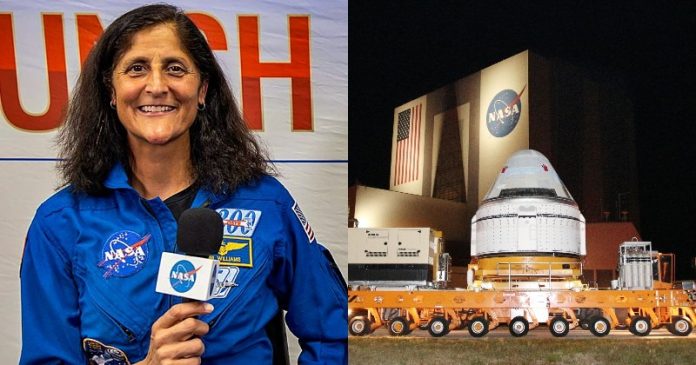NEW DELHI, May 8:
Nasa announced on Tuesday that the first crewed launch of Boeing’s Starliner spacecraft to the International Space Station has been postponed for May 17. Engineers identified a faulty rocket valve that needs replacement before the critical mission can proceed, adding to the stakes of the upcoming launch.
The test has encountered years of delays, presenting a significant challenge for Boeing.
This comes at a difficult time for the aerospace giant, with its commercial aviation division embroiled in a safety crisis.
Astronauts Butch Wilmore and Sunita Williams were strapped into their seats, poised for liftoff on Monday night, when the call for a “scrub” was made.
Ground teams detected buzzing emanating from a valve responsible for regulating liquid oxygen pressure on the Atlas V rocket, which was slated to propel the Starliner into orbit.
Initially, United Launch Alliance, the joint venture between Boeing and Lockheed Martin responsible for the rocket, announced that the launch would be postponed to at least May 10.
However, upon further analysis, it was determined that the valve had experienced excessive wear and would need to be replaced. Consequently, the rocket will be rolled back to its hangar for the necessary repairs.
“Nasa’s Boeing Crew Flight Test now is targeted to launch no earlier than 6:16 pm EDT Friday, May 17,” the US space agency said in a blog post.
Wilmore and Williams will continue to be quarantined in the crew quarters at the Nasa Kennedy Space Center, the post added.
Nasa is placing significant importance on the success of Starliner, as it aims to have a second commercial vehicle capable of transporting crews to the orbital outpost.
In 2020, Elon Musk’s SpaceX achieved this milestone with its Dragon capsule, ending a nearly decade-long reliance on Russian rockets following the end of the Space Shuttle program. (Agencies)
Trending Now
E-Paper


